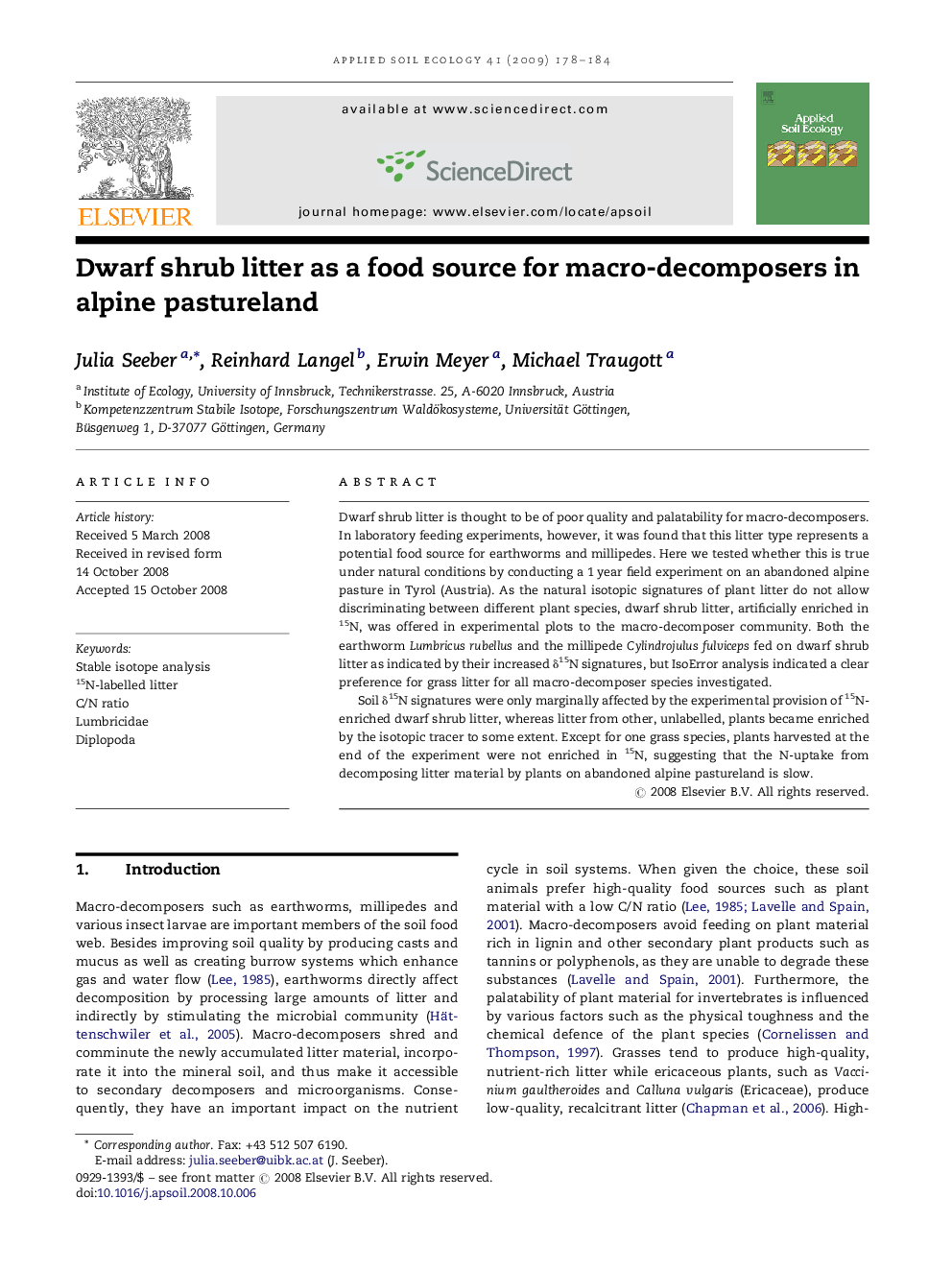| Article ID | Journal | Published Year | Pages | File Type |
|---|---|---|---|---|
| 4383078 | Applied Soil Ecology | 2009 | 7 Pages |
Dwarf shrub litter is thought to be of poor quality and palatability for macro-decomposers. In laboratory feeding experiments, however, it was found that this litter type represents a potential food source for earthworms and millipedes. Here we tested whether this is true under natural conditions by conducting a 1 year field experiment on an abandoned alpine pasture in Tyrol (Austria). As the natural isotopic signatures of plant litter do not allow discriminating between different plant species, dwarf shrub litter, artificially enriched in 15N, was offered in experimental plots to the macro-decomposer community. Both the earthworm Lumbricus rubellus and the millipede Cylindrojulus fulviceps fed on dwarf shrub litter as indicated by their increased δ15N signatures, but IsoError analysis indicated a clear preference for grass litter for all macro-decomposer species investigated.Soil δ15N signatures were only marginally affected by the experimental provision of 15N-enriched dwarf shrub litter, whereas litter from other, unlabelled, plants became enriched by the isotopic tracer to some extent. Except for one grass species, plants harvested at the end of the experiment were not enriched in 15N, suggesting that the N-uptake from decomposing litter material by plants on abandoned alpine pastureland is slow.
